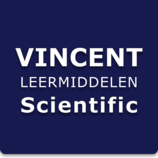How is environmentally-friendly power generated? How does a fuel cell work, and how can you use it to produce hydrogen? Renewable energy sources will become the most important sources of energy in the future. Nine models and 28 experiments are used to demonstrate the production, storage and use of electricity from natural sources like water, wind and solar power. Powerful solar models can be attached in different ways for versatile use in the models. The included Gold Cap serves as an energy storage system, and can output stored energy. The fuel cell clearly demonstrates how water is split into the two components hydrogen and oxygen. This teaches children about future energy sources and helps them learn important skills. A full set of lesson plans helps teachers use the STEM Renewable Energies set in the classroom.
Accompanying teaching material:
fischertechnik Education products include comprehensive, freely accessible teaching materials. These have been developed together with teacher training colleges, teachers and didacticians and are ideally suited to the needs of the classroom. In addition to the topic introduction, lesson plans with task sheets and educational plan references are available.
- The topic introduction provides content that can be optimally used for lesson preparation and integrated into the lessons. Definitions, history, basic knowledge and much more are provided.
- The teaching material includes an overview of the learning objectives as well as the time required for the tasks.
- In line with the curriculum-relevant topics, various tasks are included within which different experiments are dealt with.
- The tasks are divided into a construction task, thematic task and experimentation task. In this way, one progresses from building, to learning technical content, to applying the acquired knowledge.
Highlights:
Generating, storing and using electrical current / energy sources: Water, wind, sun and hydrogen
268 components are included
9 quickly buildable models and 28 exciting experiments for secondary schools
The time required for the task sheets is 45 to 90 minutes
Enclosed printed assembly instructions
Suitable for group work of 2 to 4 pupils
Accompanying teaching material:
fischertechnik Education products include comprehensive, freely accessible teaching materials. These have been developed together with teacher training colleges, teachers and didacticians and are ideally suited to the needs of the classroom. In addition to the topic introduction, lesson plans with task sheets and educational plan references are available.
- The topic introduction provides content that can be optimally used for lesson preparation and integrated into the lessons. Definitions, history, basic knowledge and much more are provided.
- The teaching material includes an overview of the learning objectives as well as the time required for the tasks.
- In line with the curriculum-relevant topics, various tasks are included within which different experiments are dealt with.
- The tasks are divided into a construction task, thematic task and experimentation task. In this way, one progresses from building, to learning technical content, to applying the acquired knowledge.
Highlights:
Generating, storing and using electrical current / energy sources: Water, wind, sun and hydrogen
268 components are included
9 quickly buildable models and 28 exciting experiments for secondary schools
The time required for the task sheets is 45 to 90 minutes
Enclosed printed assembly instructions
Suitable for group work of 2 to 4 pupils
Caractéristiques
- 559881/FT

